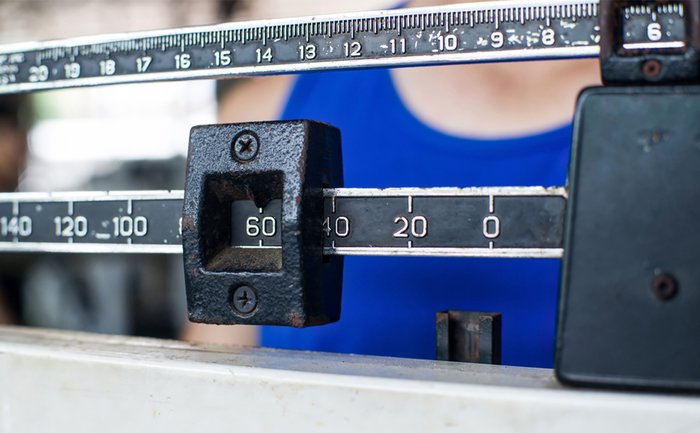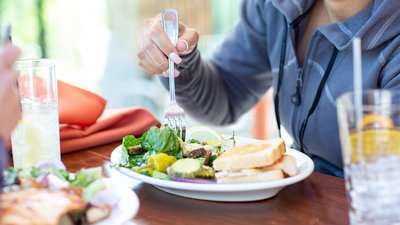Dieting can be grueling, inconvenient, and exhausting, especially when you're doing it for weeks or months consistently. But that raises a question: Does it really have to be consistent 24/7 to work? Or is a window of normalcy—maybe not a full-on "cheat," but something more strategic—enough to alter your results one way or another?
It turns out there's a growing amount of research indicating that dietary "refeeds" could be just what you need to get even better results. Refeeds interrupt consecutive days of low-calorie dieting. They are specific, planned days where you eat more food than usual while dieting. But simply eating more may not be enough. Get your extra calories from a specific macronutrient, and you might fare even better.
Intrigued? Hungry? A little of both? Read on.
Why Refeeds Work
There are many reasons, both physiological and psychological, that refeeds can be beneficial, including:
- Potentially enhancing fat loss by decreasing some of the body's adaptive responses to chronic caloric restriction
- Increasing your metabolism, which is essential for long-term fat-loss success
- Elevating leptin levels, which decreases your appetite and cravings for food
- Providing a temporary break from your diet, which can help with dietary compliance
That last point shouldn't be discounted. I know it's tempting to just try to "gut it out"—or tell other people to do so—and try to succeed on willpower when restricting calories. But for many people with weight-loss dreams, this ends up doing more harm than good. Rather than bend their diet just a bit and see it succeed, they end up breaking it entirely.

There have been a number of studies on the effectiveness of refeeds, but until recently, there weren't any focusing on people who lift weights and want to get leaner. So my lab undertook to study just that, and we presented the findings of our diet refeed study at the fifteenth International Society of Sports Nutrition Annual Conference.
Diet Refeeds vs. Continuous Dieting
Twenty-seven resistance-trained men and women were randomly assigned to follow one of two approaches:
- A seven-week continuous diet with no diet refeeds
- A seven-week diet that included two consecutive days of maintenance calories per week (usually on the weekends)
The continuous diet group reduced their calories by 25 percent below maintenance and were not allowed to deviate from this caloric restriction. So yeah, by the end they were ready to be done!
In contrast, the diet refeed group was instructed to decrease their caloric intake by 35 percent below maintenance for five consecutive days, and then to increase their caloric intake to their maintenance levels (the same number of calories they were consuming before the diet began) for two consecutive days each week.
However, just any calories wouldn't do. We had them increase their calories entirely through carbohydrates. This type of refeed is rightly called a "carbohydrate refeed." With this arrangement, both groups averaged a 25 percent reduction in caloric intake each week.
The other macronutrients weren't left to chance, though. Protein is vitally important when dieting, particularly for women, and it's also crucial for maintaining performance during training. So we made sure that both groups were ingesting enough protein. Specifically, all subjects, regardless of group, consumed 1.8 grams of protein per kilogram of body mass per day. This is equivalent to 0.81 grams per pound of body weight, or 121 grams for a 150-pound person.
All subjects worked out in the Physique Lab at the University of South Florida four days per week and tracked their macros every day during the seven-week study. Before and after the diet, our research team assessed body composition (fat mass and lean body mass) and metabolic rate.
Here is what we found:
Body Composition
Both groups lost a similar amount of body weight and fat mass. The more interesting finding was when we analyzed the lean body mass outcomes of the two diet groups. The continuous diet group lost a significant amount of lean body mass during the diet, at nearly three pounds. The refeed group was able to far better maintain their lean body mass—losing less than a pound of lean body mass!

Continuous Diet Group:
- Body Weight: -8 lbs
- Fat Mass: -5 lbs
- Lean Body Mass: -3 lbs
Refeed Diet Group:
- Body Weight: -7 lbs
- Fat Mass: -6 lbs
- Lean Body Mass: -1 lb
Metabolism
Metabolic rate (how many calories you burn for fuel over the course of a day) followed a similar pattern as the lean body mass measures. Both groups experienced a slowing down of their metabolic rates, but the refeed diet group fared much better. The continuous dieting group experienced a significant decrease of 78 calories per day, while the refeed group realized a non-significant drop of only 40 calories per day.
What This Means for You
Our research demonstrates the clear benefits of incorporating a diet refeed into your weight loss program. Having two consecutive days per week in which you increase your caloric intake in the form of carbohydrates to maintenance levels allows for a greater maintenance of lean body mass and metabolic rate.
Also, there is likely a psychological benefit of having these intermittent refeeds. Knowing that you will get a little break from dieting each week will most likely help you stick to your diet long term, while still losing a considerable amount of fat!
Before you try low-carb or any other diets, make sure you've got the essentials of nutrition down! Bodybuilding.com's Foundations of Fitness Nutrition video course, hosted by two registered dietitians, will tell you everything you need to know in nine videos with quizzes and notes to help make it stick. This is where better nutrition starts. Where it goes next is up to you!
References
- Campbell B, et al. (2018) The effects of intermittent carbohydrate re-feeds vs. continuous dieting on leptin concentrations in resistance trained individuals: A flexible dieting pilot study. Journal of the International Society of Sports Nutrition, 15(1), A1.

